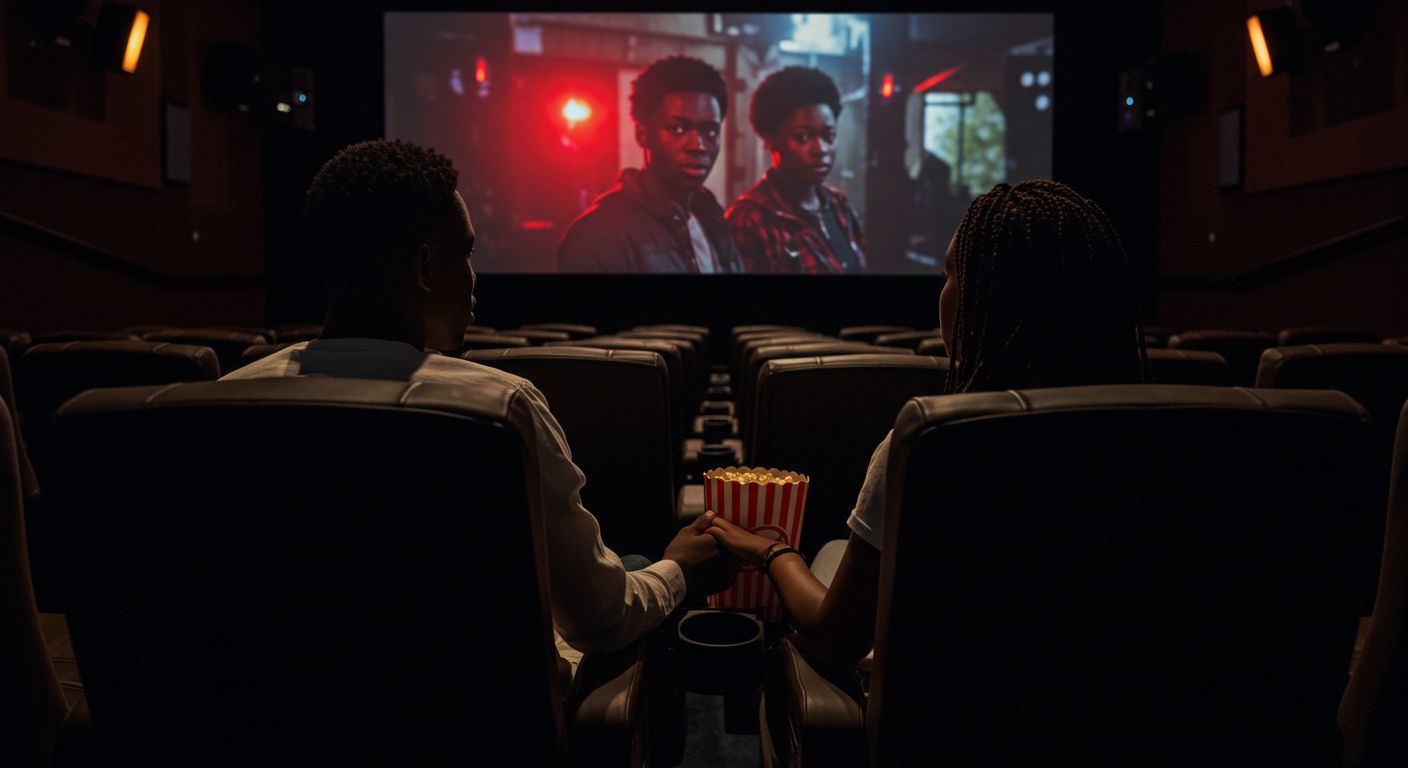Features
Can the Average Nigerian Still Afford to Watch Films?

My roommate and I planned to visit the cinema at least four times a month. We both love film, and even though we enjoy the comfort of watching films however we like at home, nothing ever beats the feeling of visiting the cinema, holding hands and giggling with others at funny or over-exaggerated scenes. For me, anyway, visiting the cinema is like watering a plant from my childhood that has never tasted water. I enjoy the cinema because growing up, it wasn’t a thing.
When we visit the cinema, most of the time, we are often joined by one or two people. Sometimes, it’s just the two of us. (Except when there’s a widely anticipated film). While there are some you-can-guess advantages to being alone in the cinema, I always fear it reflects a social issue. The cheapest ticket in the cinema, in my state, is five thousand naira. For four movies in a month, that’s 40 thousand naira for both of us, excluding concession snacks. That might be a throw-in-the-bin sum for some people, but for most Nigerians, who, according to PiggyVest’s 2024 report surveying 1,000 Nigerians, only 8% earn above 250 thousand naira monthly and spend the majority of their income on food, healthcare, housing and transport. Meanwhile, the national minimum wage remains at 70,000 naira, and according to an NBS report, food prices have increased by 97% in one year. No be who don chop dey watch film?
“I cannot afford to watch two movies in the cinema in a month because right now, my salary is done and I still have bills,” said Ayonni, a programs manager. “It’s not that I can’t afford to watch, but it can only happen when some money is lying around unused.”
While there are no accurate numbers for how many films are released in a month, Nollywood is the second-largest producer of movies in the world, after Bollywood. In July, more than 5 films, including Red Circle, Freedom Way, Eewo, Cordellia, Dark Path, and Her Excellency, were released in the cinema. Sure, several releases give the audience a variety to choose from, but being economically forced to only watch a movie in a month detaches the audience from experiencing the various qualities in the movies, especially at a time when the industry is experiencing several critical evaluations.
Beyond the cinema, Nollywood is distributed across several streaming platforms, which all require subscriptions. The least subscription, Showmax, is 1,600 naira. While these platforms offer convenience and variety, the cumulative expense becomes another financial burden for the average Nigerian. For someone already struggling to meet basic needs, maintaining multiple subscriptions just to stay connected to one of the country’s biggest cultural exports is a luxury they might simply not afford.
According to Seyi Lasisi, a film critic, the consequence of this will tell on film culture in Nigeria because films are expected to have a life of their own. The unaffordability of films “disempowers an average Nigerian from seeing a film that reflects their realities, culturally or politically. It also limits the gaze the audience is meant to form of the life a film is meant to have. Films are part of the culture, and when they are released, they are meant to ignite conversations,” Seyi said. “An example is Omoni Oboli’s Love in Every Word. The accessibility of the film makes it a discussable asset for the audience. I don’t think there was a week when the word “Achalugo” wasn’t used.” That is the kind of life films are meant to have, and when average Nigerians, who form most of the population, cannot afford to watch these films, they cease to exist in the culture of the moment. And films, like all art, mirror the state of a nation.
A major consequence is that this can be discouraging for filmmakers. While movies are art, they’re also businesses. When projects fail to generate profits, it discourages them from further producing films, or releasing them in the cinema, especially at a time when there are fluctuations around the presence of streaming platforms in Nigeria, and changes in their subscription prices. “Art seems to be suffering in this country,” Seyi said.
What are we losing when Nigerians can’t afford to watch their realities?























